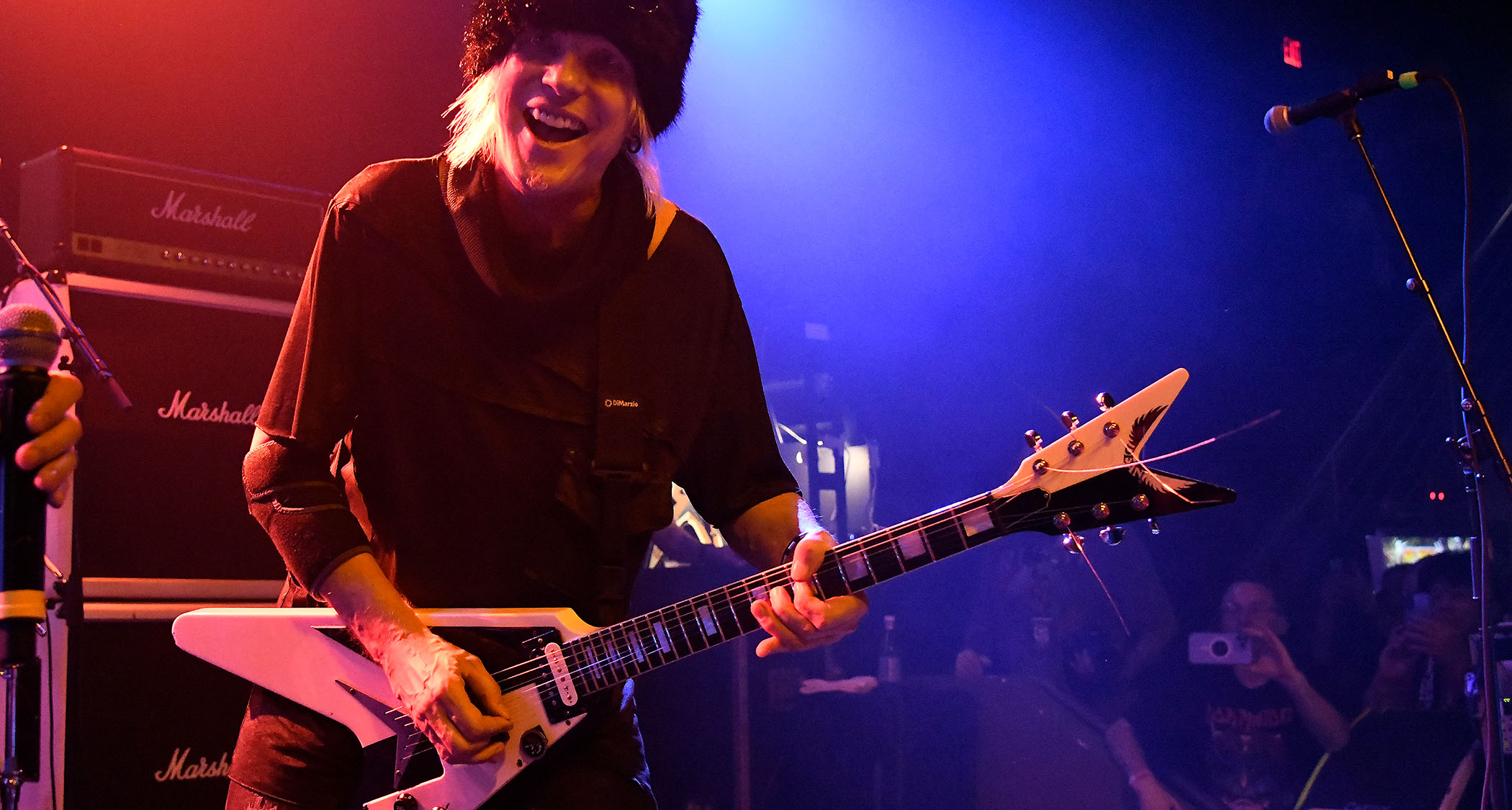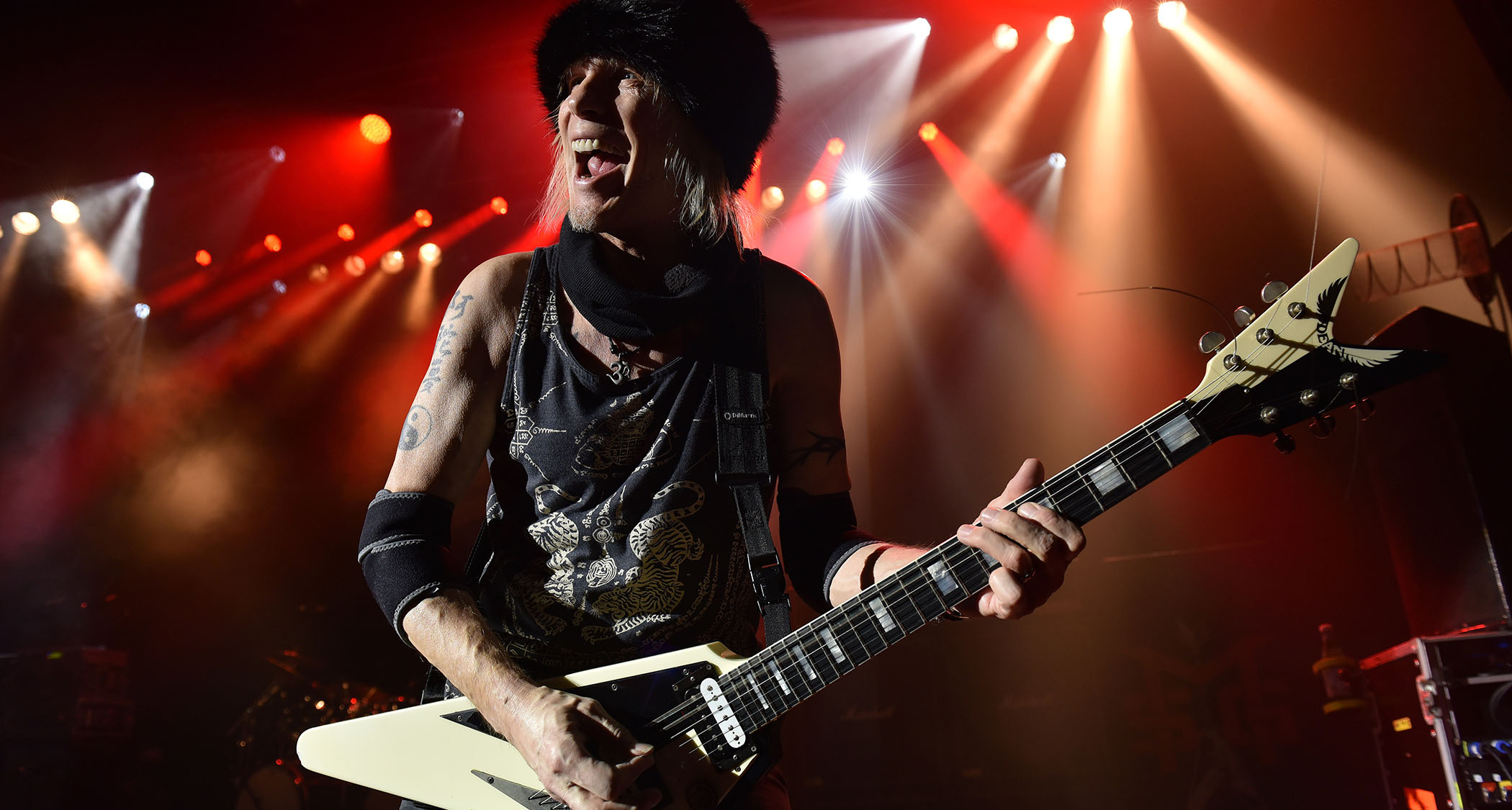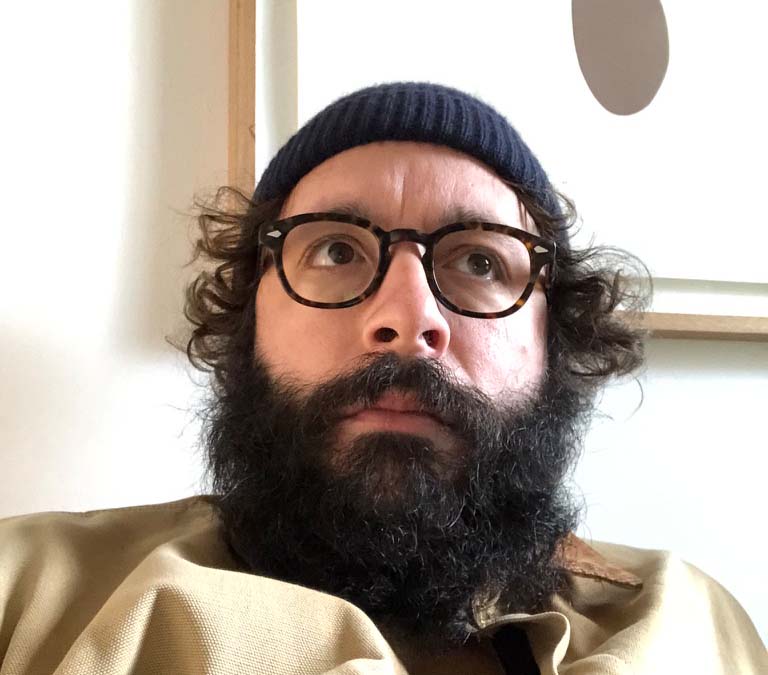“You can feel embarrassed when you play a bum note, but I played bum notes on Strangers In The Night. Today those are the right notes!” Michael Schenker on rerecording UFO with Axl Rose, triangle guitars – and why there are no bad playing habits
Rock legend Michael Schenker checks in to talk My Years with UFO, the appeal of the V-shaped guitar and why he does not sweat the technique (and maybe you shouldn't either)

Brilliant, eccentric German guitar hero Michael Schenker debuted with the Scorpions before joining UFO in 1974, then breaking out on his own with The Michael Schenker Group. He favours a black and white Flying V and helped popularise cocked-wah guitar tone. His new album is an all-star celebration of his UFO days, featuring Slash, Axl Rose and other heavy friends.
What guitar did you learn on?
“It was a guitar that was lying around. It must have been an acoustic. My brother Rudolf [Scorpions guitarist] got a Gibson for his birthday instead of a motorbike. It must have been that one that I secretly played against his will!
“The first song I played was something to do with San Francisco. It was a hit in those days. [Hums San Francisco by The Mamas And The Papas] Yeah! And there was a solo in there, and I learnt that. I was nine years old and I was very happy.”
Was was there a moment when you felt you had arrived as a player?
“No, it has always been the same for me. Right from the moment when I was nine years old and picked up a guitar, I was always amazed with what I could discover, and it never stopped. I am in the same place!
How much did you practise in those early days and how often do you practise now?
Get The Pick Newsletter
All the latest guitar news, interviews, lessons, reviews, deals and more, direct to your inbox!
“It is more like play and discover. That’s different. It is less technical. It is more like looking for gold, and once in a while I find a piece of gold. This will automatically become part of my developed style.”
What you do with the guitar expresses your personality
What is the one song or performance that you’re most proud of?
“I’m happy with everything. For me, it is never about a song. I am a lead guitarist! Ha! Lead guitarists think differently. My whole life has always been about development, so every moment is special, and every moment is different. We can never compare any of them."
What was your biggest motivation as a player?
“I wanted to express myself. That was my devotion. It still is and I have done it for 50 years, without listening to music so I don’t get influenced, and that’s where the uniqueness comes from. Focus on opening up what’s unique about yourself. Anybody who makes that decision can do it. I am a musical monk or something. That’s my mission. Self-expression is my mission.
“That’s what I want, in every sense, not just music. I just love to self-express and really do what I like to do. I am just in a place where I choose to do it this way instead of copying anyone else. What you do with the guitar expresses your personality.”
What technique did you have to work hardest to master?
“There is no technique for me. Technique is very, very much in the background. The important thing was to find the note. I felt like I knew it was there, somewhere, and I have to find it! And the last thing on my mind was if I do it the right way or the wrong way, as long as I found that note.
“And of course, that’s what I did. Day after day after day, I basically developed – technically – the wrong way of playing compared to today where you have the guitar schools, where you learn the perfect position of the hand, how to hold your fingers and play with all five fingers. But I couldn’t have found my notes. I couldn’t have written the songs I wrote if I would have followed that first. I just didn’t care if I did it the right or wrong way.”
As a player, do you have any bad habits?
There are no bad habits! There is only one thing: to make good music however you do it.
“There are no bad habits! There is only one thing: to make good music however you do it. Hey, there is no right or wrong for me. I can get better technically because I have plenty of time to get my fingers into easier positions, but the thing is, there are certain ways of playing, like my style, that you cannot necessarily get across if I play it perfectly positioned with my fingers based on what’s taught at guitar schools.
“It’s like fishing. How you find the note, how you strike or sweep over the strings, how you hit them, that is how the sound comes together. It’s not technical. Technicality makes everything clinical.
“But fishing for notes as a priority makes everything three dimensional, analogue. It gives it warmth. It’s not perfect – it’s feeling. It’s more feeling than having the right position of your fingers playing guitar.”

In your early days, what guitar was the game changer for you?
“A triangle guitar! Yeah, very strange. I had never seen a Flying V, but when I was at school, doing this project, building something out of wood, I wanted to make a guitar and ended up building a triangle guitar, which is similar to a Flying V, but it’s not the Flying V.
“You put a Flying V next to a Les Paul, next to a Strat, on the floor, it won’t do anything. It becomes something with the person who picks up the guitar. That’s what that guitar becomes. I found the Flying V by coincidence. Like many things in my life, it happened by itself. So maybe I was meant to have that guitar.
“I discovered that guitar by accident. I liked the combination of my amplifier with that guitar. It was closer to the sound I imagined, and I found that I was able to do a really good vibrato by putting the V between my legs, so that the neck would not wobble around. I was able to lock it in and so that was one of the main reasons why I felt good about that guitar.”
With your new album of classic UFO material, was there anything you learned about your playing when revisiting songs you wrote 50 years ago?
“I don’t analyse things. I just do it. I don’t analyse what I have done, or why I did it, I just do it because that is the moment of being an artist. You just do it. Less thought!”
What do you play when you’re just relaxing and playing for fun?
“Again, I don’t think. I just pick up the guitar and play. But one thing I do in order to keep shape is I play to a metronome to make sure I am not slowing down in any way, because when you get older the way we perceive time is different from when we are younger, so sometimes you think you are playing as fast as you did the day before but it is do with the biological rhythm. I always measure by a metronome, at a certain speed. I have to make sure that I can play my old songs.”
Do you have any favourite tracks from revisiting your UFO years?
“I love This Kid’s with Biff [Byford, Saxon frontman]. I was amazed. I always wanted to do something with Biff. Every song is different but everybody did a great version. I don’t like comparing things. I just like to listen to it and not compare it like the Olympics! There are so many different qualities, different feelings, but all of them are unique in their own way, so I don’t give them points for their performances.
One thing I do in order to keep shape is I play to a metronome to make sure I am not slowing down in any way, because when you get older the way we perceive time is different from when we are younger
“It is all great stuff, what they did. When I heard Dee Snider [ex-Twisted Sister singer] I went, ‘Wow!’ I didn’t know he had a great voice like this. Kai Hansen [Helloween guitarist/vocalist] was another one. He did a fantastic job on Rock Bottom. And when I heard Joel Hoekstra, he sounds like a saxophone on his guitar. He’s really, really unique. It was fun. It still is fun listening to the different approaches. I didn’t expect anything, but when I heard it I was extremely happy with it.”
And Axl Rose?
“Axl originally sang three songs, but he didn’t like his versions of Only You Can Rock Me and Too Hot To Handle, so he decided to stick with Love To Love, which is a fantastic version.
Can you recall a moment when you felt like you’d failed as a player or felt embarrassed by a performance?
“That’s a big question. Of course you can feel embarrassed when you play a bum note. But I don’t really focus on that. I’d rather focus on the good moments. You know, I played bum notes on Strangers In The Night [UFO’s legendary 1979 live album], and today those bum notes are the right notes! Because everybody got used to it.
“And people ask me, ‘Michael, how do you make this work, playing a major over a minor?’ I’m like, ‘I don’t know what you’re talking about!’ But they might have been asking about those bum notes!”
- My Years With UFO is out now via EarMUSIC.
Jonathan Horsley has been writing about guitars since 2005, playing them since 1990, and regularly contributes to publications including Guitar World, MusicRadar and Total Guitar. He uses Jazz III nylon picks, 10s during the week, 9s at the weekend, and shamefully still struggles with rhythm figure one of Van Halen’s Panama.
“I heard the Money solo and thought, ‘This is amazing!’ So I sent David a telegram saying, ‘Remember me? I'm in a band now called Roxy Music’”: Phil Manzanera on his friendship with David Gilmour, and the key to the Pink Floyd man's unmistakable tone
“It’s really quite genius, but also hard to learn – it sounds insane, but sometimes the easiest songs still get me nervous”: Kiki Wong reveals the Smashing Pumpkins song she had the most trouble with

















